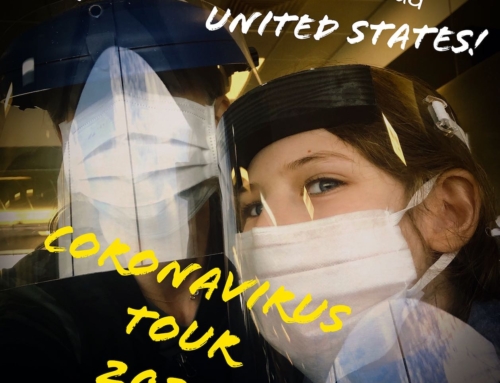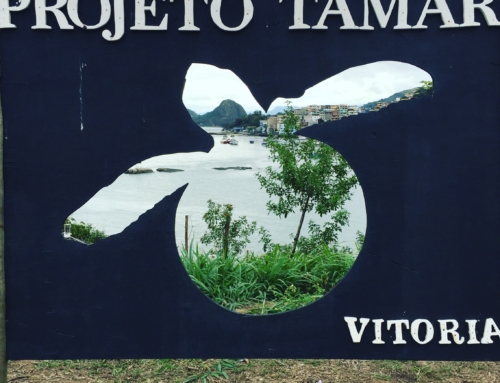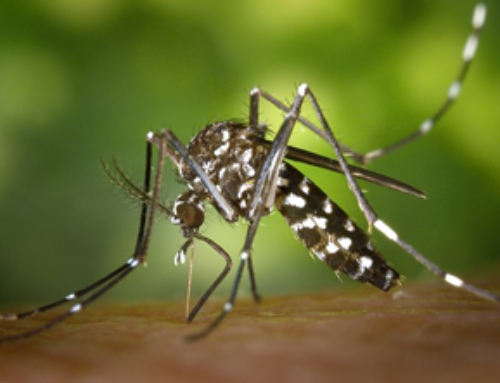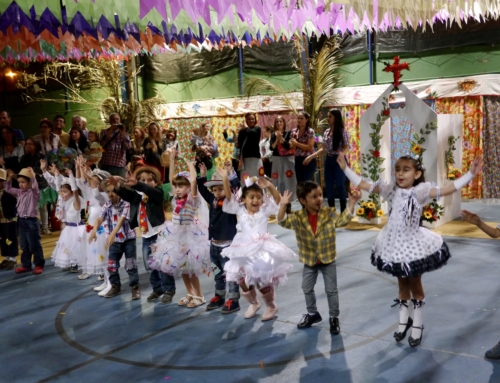
Vitoria, Espirito Santo, Brazil
I’d been wondering how to break a five months long silence on my blog. I couldn’t think of a topic or an angle. I didn’t know what I wanted to write about to kick off a new year.
Then the police went on strike.
Early Saturday, February 4, the wives and families of police officers across the state of Espirito Santo gathered in front of barracks, forming human chains across the entrances effectively blocking any police or vehicles from entering or leaving the barracks. After four years without a pay raise and the lowest salaries of any police in Brazil, the movement wanted a raise and bonuses for night and higher risk work for the police. By late Saturday morning, there were no police on the streets anywhere in the state of Espirito Santo.
It actually took a couple of days for their absence to be felt statewide. Saturday was a totally normal day for us. We went to a park near the beach and had lunch out. A sitter came over later, and my husband and I had date night. We walked to our favorite restaurant, passing people grabbing ceviche from a food truck, walking dogs, or making a late run to the drug store.
The only hiccup came at the door of the restaurant. It was locked. There were people inside eating. The security guy confirmed the restaurant was open and within seconds a waiter let us in, locking the door behind us.
Our blissful ignorance lasted until Sunday morning. When planning our day, my husband said in passing “The police are on strike, so we should go somewhere with private security.”
Excuse, me?
One long term consequence of the strike for me personally is that I’ve now started reading my local paper. Something I should have probably been doing on occasion these last six years.
We did go out in the morning, but by Sunday evening we were having dinner at home. With the increased risk of violence, public hospitals, schools, and universities across the state closed for Monday. Private schools, including my daughters, followed suit. Monday, February 6, was supposed to be the first day of the new school year.
That night I noticed my husband locking the deadbolts before going to bed. We never locked the deadbolts before.
The texts from concerned friends around Brazil and even in Portugal started popping up Monday morning as did footage from around the city and state. While our neighborhood had been relatively quiet over the weekend, other areas were not as fortunate. Gangs of looters attacked stores around the metro area. A burning bus, armed robbers zipping around on motorcycle, shoot outs in the street. I learned several stores in our neighborhood had been robbed over the weekend, and pictures of smashed storefronts and videos of carjackings were filling up my Facebook feed.
Gangs were taking advantage of the police’s absence and shooting anyone from a rival territory who crossed their path. The number of murders in the metro Vitoria area over the weekend was 51 compared to 4 in January.
By Monday afternoon, the extent of the violence that had descended on the state in the police’s absence was clear. The state government asked Brasilia for military assistance.
We stayed home all day Monday. Schools were canceled for a second day, so we stayed home all day Tuesday. By the end of the day Tuesday after more than 60 hours at home, my daughter and I were screaming at each other over a Lego train. Our problems were nothing.

Vila Velha, Espirito Santo The city across the bridge from Vitoria. All part of metro Vitoria.
By Wednesday the police union was reporting the number of violent deaths in Espirito Santo during the strike had risen to 90. 200 cars were reported stolen on Wednesday up from an average of 20. More than 200 robberies and assaults. Schools, stores, restaurants remained closed. R$90 million loss to businesses. Public transportation had stopped running. The streets were completely empty.
My dad called from the US on Wednesday morning.
I hadn’t called anyone. Our neighborhood was quiet, our doors were locked, and the army had been spotted patrolling a few blocks from our building. We were safe, so I didn’t see any reason to alarm family. But the BBC picked up the strike. For maybe the first time ever Vitoria, Brazil was international news, and my dad saw the headline.
I assured my dad we were safe and our neighborhood was calm. I told him about the Governor’s press conference that morning in which he passionately declared the strike illegal and unconstitutional and vowed not to negotiate with hostage takers. Meanwhile, one of the wives in the movement gave an interview vowing not to move until the police got a raise. So there wasn’t going to be any deal in the near future.
I didn’t mention the attempted building invasion that happened around corner Tuesday night.
I was putting my daughter to bed and didn’t hear the commotion, but my husband did. He thought it was people cheering the army driving through the streets. We learned the next morning that a gang had tried to break into one of the apartment buildings around the corner. Somehow they were thwarted, but we were done. What is a single doorman going to do against a mob? Our uneventful days at home now seemed more like good luck than legitimate security.
We bought one-way tickets for Rio and left that afternoon. The irony of going to Rio de Janeiro to escape violence is not lost on me. Our first day in Rio, there was a massive strike against the privatization of the water company. We drove by streets packed with police trucks and vans and battalions in full riot gear. “Oh, here are all the police.”
We spent the remainder of the police strike in Rio checking the news constantly to see if a deal had been reached. Friday night the government announced a deal, but on Saturday morning the wives and families announced they had no intention of leaving because they had not been included in the deal. The governor signed a decree handing security over to the army, which called in 3,000 troops. The strike was declared illegal in court, and police were ordered to return to the streets. A week after the strike began, the news reported more 700 police officers were being indicted.
With the additional troops, violence subsided and residents desperate to resume normal lives after a week of unrest returned to the streets. The buses were back to running on Sunday. Schools announced they would finally start the new year on Monday. We flew back on Sunday afternoon to find the city running more or less as usual.
As of this morning, the government says 1,900 police have returned to patrols, which is “close to the normal amount”. I’d like to know exactly how close, but I have a feeling the government wants everyone to just assume 95%. Based on how normal life around the city is, I’d guess that’s what we’re all doing.
There are still families protesting. Not all barracks have returned to patrols. The government has released a list of 155 names of officers under investigation. The state also released its own number of homicides. Between February 4 and 13, there were 143 homicides. February 6 was the most violent. 40 people were murdered compared to three the same day last year. The Federation of Goods and Commerce estimates losses for businesses will exceed R$300 million.
Through the whole crisis the wives and families surrounding the barracks insist the protest was their idea alone, and the police had nothing to do with it. They claim it was organized among themselves through social media without their husbands’ knowledge. No one believes this.
There were many people who agreed with them that working conditions for the police in Espirito Santo are abysmal. The government should be ashamed. Brazil’s economic crisis has been driving up inflation but the police in Espirito Santo haven’t had a salary adjustment in four years, let alone an actual raise. But they overplayed their hand. What started as a protest by wives, mothers, and sister gathering at a single barracks in Serra grew over the course of 24 hours to a full police strike that brought statewide chaos.
It was shocking, frightening, and for my part almost too surreal to feel anything. I went to the airport with my and my daughter’s passports in my shoes.
And now if you weren’t personally affected by the violence, it’s life as usual.
Except it’s pretend. People are dead and livelihoods lost. The police didn’t get their raise, and now hundreds are at risk of losing their jobs and the commanders are saying publicly the police department and its hierarchy has been completely destroyed. The army will be providing extra security for Carnaval celebrations and has promised to stay as long as it’s needed, which is indefinitely at the moment. And honestly having my streets patrolled indefinitely by soldiers trained for war, not civilian law enforcement, makes me queasy.
And yet I’m sitting at a café with my cappuccino writing a blog post loving the freedom that comes with a regular school day.
It was a disaster. There were no winners. Just a very, very long list of losers. I’d say I’m glad it’s over but it’s not over. The police might be back on the streets, but the fall out hasn’t even begun. And the list of losses will just keep growing.







[…] Four days after the winners were announced, the police in my state went on strike. […]
Well now I feel like a real asshole. I didn’t learn about the strike until it was over, but when my husband told me about it, I didn’t believe him. I had JUST read an article that said ES had the healthiest financial “grade” of all the states. (Maybe in part from never raising wages :/ ). If I had known you guys needed a place to go, I would have said hop on the train and come stay at our place. How has it been since the riots? Is everything settled down or is there tension in the city? If you guys need a place in the future, we’re here!! Our house isn’t huge, but the kids never sleep in their bedrooms, so we have space. You have my email and you can find me on Facebook if you’d like.
Don’t feel bad. Disbelief is a perfectly natural reaction.
“Hey, did you here all the police in Espirito Santo went on strike?”
“That’s ridiculous. All the police in a whole state wouldn’t go on strike.”
Things are back to normal here. The strike officially ended with a deal reached last Saturday, Day 22 of the strike. The police came back on the street just in time to keep from going to the public parks closed due to Yellow Fever cases.
I’m glad to hear everyone is ok! This is scary. Makes me thankful for the collective bargaining power of unions available to some of us in the states. Is there a union equivalent in Brazil?
Unions exist in abundance in every sector here and in my opinion, are much more present in the Brazil than the US. Unfortunately, the current economic crisis in Brazil, massive levels of corruption, and gross mismanagement have left many states in the country bankrupt and governments claim they have no resources to pay their current bills let alone give public employees raises. Rio de Janeiro is actually deferring payments to public sector employees, including police. The police have a union but are forbidden by the constitution from striking. The families protested because they gave up on the union having any success at all. It’s a terrible situation. And it really all stems from massive institutionalized corruption in the government.